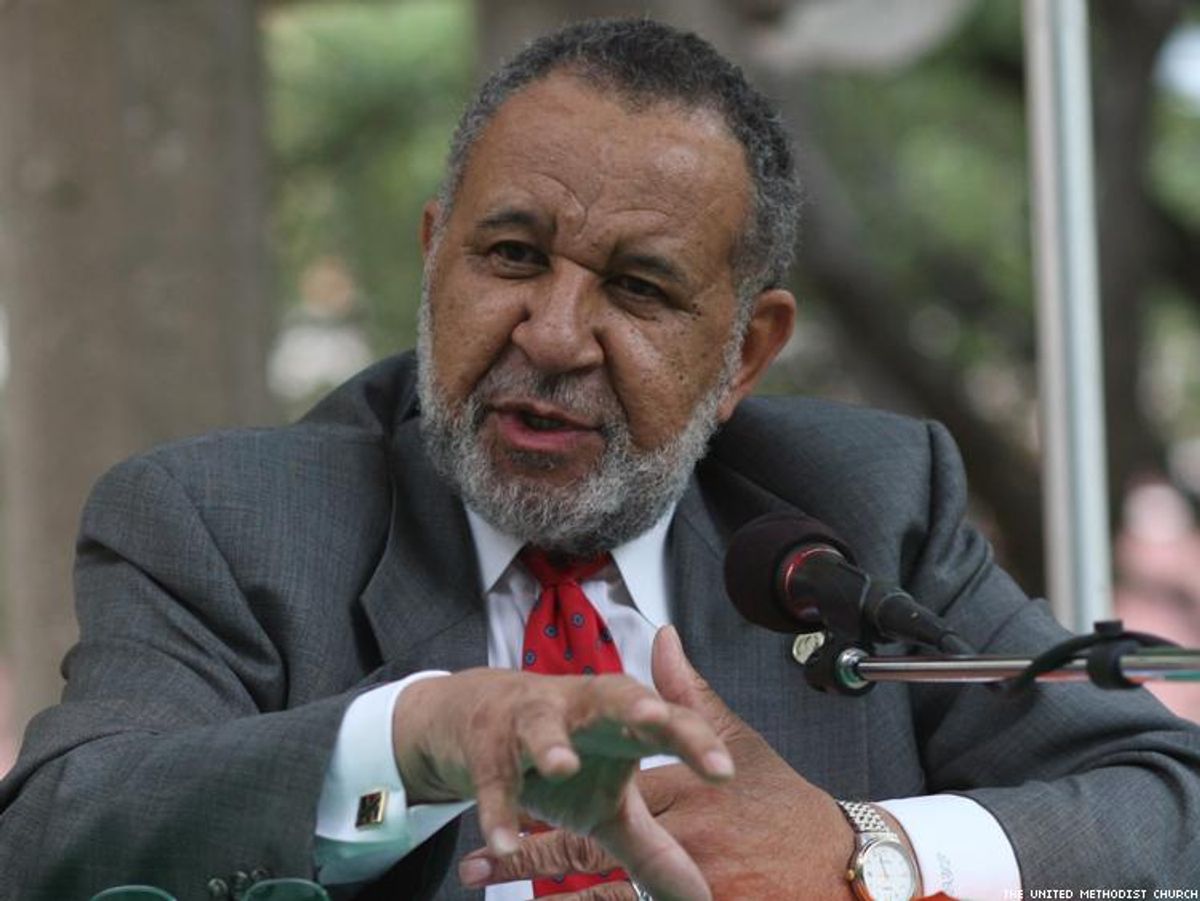Meet me at the intersection.
As I looked out on the 6,000 women and men, boys and girls, transgender and cisgender, of every hue, background, and orientation at the Women's March in Asbury Park, N.J., January 21, I was reminded of the March on Washington, the Selma to Montgomery March, and the Martin Luther King-led March to Boston Common.
It was the enthusiasm in the crowd, the music, the signs, the laughter, candor, and hope etched on the faces of those present that were the same. The protesters countered the collective depression caused by the presidential campaign and results of the election of 2016.
What happens in a protest of this magnitude is that you become family because you are concerned about the same cause. That day at the Women's March we became family across our nation and around the world. I thought of King's words: "Injustice anywhere is a threat to justice everywhere." Women's rights, immigration rights, LGBTQ equality, racial justice, and other civil liberties in jeopardy are all connected by our shared humanity; it's what binds us together, and together we are stronger.
I find that it is impossible to be silent in the midst of the injustices rolling out every day from this administration. This is a time, like when voting rights were denied to blacks in Selma, Ala., when we must take matters into our own hands. We don't want the segregationist or xenophobe to have the last word. There may be uncertainty about our next steps, but there is certainty about the necessity for them. We are in need of a rejuvenation of our freedoms, the freedom of speech, assembly, and protest. King said, "The ultimate measure of a man is not where he stands in moments of comfort and convenience, but where he stands at times of challenge and controversy."
As we came to Dallas to screen our documentary, From Selma to Stonewall: Are We There Yet?, and engage diverse communities in a discussion of all of these issues, I will carry the hope and energy from the march to the place where I grew up and experienced discrimination in as a young man. I attended racially segregated B.F. Darrell Elementary School and Booker T. Washington High School. I vividly remember the pain and challenges institutionalized racism placed on our lives in Texas. There was the indignity of my mother having to take dresses home to try on because she was not allowed to do so at the department store. And there was only being able to attend the Texas State Fair when it was Negro Day. These insidious, everyday experiences burrowed into the psyches of African-American people. I returned to Dallas as a wounded healer. I will not be silent about the threat to transgender rights in Texas. I will speak out about the injustice and inhumanity of the immigration ban. I will join with others seeking to illuminate our shared humanity.
Today, more importantly than ever, we must address the intersection of justice issues. Central to our film, we want those who are LGBTQ rights activists to understand their relationship to those who are black rights activists and vice versa. And we hope those who do not identify with these justice issues will begin to understand how their justice priorities fit with our rights struggles.
As a longtime straight LGBT rights activist, as an advocate and ally of others, I have found that my life has only been enriched. I wish that more persons would experience that, and our film is a vehicle for that change. I look forward to coming home to Dallas to look at how far we have come and discuss what we must do moving forward to create a more fair and equitable world for all of us.
At the Women's March, I suggested that now there are four terms that begin with S that should shape the justice struggles of the 21st century: Seneca Falls, N.Y., the place of the first women's rights gathering, Selma, the launching place for voting rights; Stonewall, the New York bar where an uprising energized the gay rights movement; and Saturday, January 21, 2017, when the Women's March when women (and men) made "We the People" a reality rather than rhetoric.
Are we there yet? No. But each step we make, every conversation we have with one another and every time we come together to discuss where we meet at the intersections is one closer to that "beloved community" Dr. King spoke of so often.
REV. GIL CALDWELL is a co-executive producers of From Selma to Stonewall: Are We There Yet?, which screened in multiple locations in Dallas last week. Get more information.


















































































Fans thirsting over Chris Colfer's sexy new muscles for Coachella